ANALYSIS: By Chris Wilson, University of Auckland, Waipapa Taumata Rau; Ethan Renner, University of Auckland, Waipapa Taumata Rau; Jack Smylie, University of Auckland, Waipapa Taumata Rau, and Michal Dziwulski, University of Auckland, Waipapa Taumata Rau
As our research has previously revealed, the man who attacked two mosques in Christchurch on 15 March 2019, killing 51 people, posted publicly online for five years before his terrorist atrocity.
Here we provide further information about Brenton Tarrant’s posting. This article has two main goals.
First, by placing his online posting against his other online and offline activities, we gain a far more complete picture of the path to his attack.
- READ MORE: Christchurch terrorist discussed attacks online a year before carrying them out, new research reveals
- The road to March 15: ‘networked white rage’ and the Christchurch terror attacks
- Can ideology-detecting algorithms catch online extremism before it takes hold?
Second, we want to show how his online community played a role in his radicalisation. This is important, as the same can happen to others immersed in that community.
In combining his online and offline activity here we do not seek to attribute blame to those who might have been expected to detect this behaviour. It is exceptionally difficult to identify terrorists online.
And yet, history is full of difficult problems that have been overcome. We use the benefit of hindsight to provide greater understanding of Tarrant’s pathway than has previously been available.
The aim is to prevent similar attacks by better understanding how such people act and how they might be detected.
Words and deeds
In the timeline below, we focus on Tarrant’s activity in 2018, following his first visit to Dunedin’s Bruce Rifle Club on December 14 2017, until his final overseas trip in October. It is for this period that we have the most comprehensive online posting history.
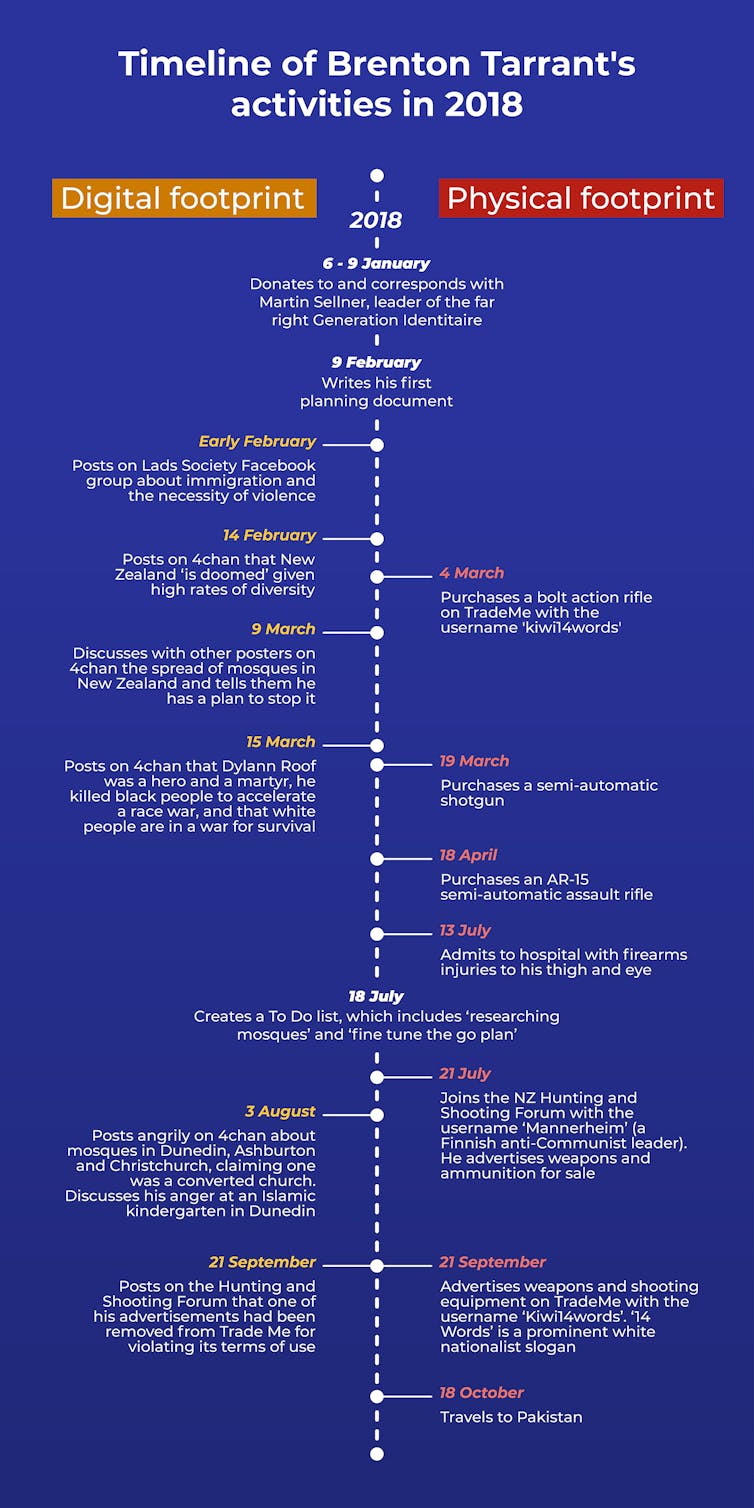
In 2024, we have both the benefit of hindsight and the accumulation of information relating to the attack. However, this triangulation of online and offline activities illustrates the ways those contemplating terrorist violence might act.
We can now see, for example, that Tarrant bought high-powered firearms on three occasions over a six-week period in March and April 2018. And he posted publicly twice on the online imageboard 4chan about his plans for racially motivated violence, and his veneration of a perpetrator of a similar attack.
Tarrant therefore not only “leaked” his plans for violence, he did so at the very moment he was buying weapons for it.
Over 20 days in July and August, Tarrant presented to hospital with gunshot wounds, and began selling weapons online under the username Mannerheim (the name of a Finnish nationalist leader revered for defeating the communists in the country’s civil war).
He also posted publicly about his anger at the presence of mosques in South Island cities (claiming one had replaced a church). He wrote “soon” when another poster suggested setting fire to these places of worship.
A month later he attempted to sell weapons on online marketplace TradeMe, using a prominent white nationalist slogan — “14 Words” — in his username. (Strangely, this clear red flag was mentioned only once in the royal commission report on the attacks.)
TradeMe removed one of these advertisements for violating its terms of use. That caused Tarrant to move to another forum — NZ Hunting and Shooting Forums — to complain.
Extremist community
Our study has also revealed how important the 4chan community is to the radicalisation of individuals like Tarrant. In contrast to the fleeting human interaction he had with others as he travelled the world, 4chan was Tarrant’s community.
4chan’s /pol/ (politically incorrect) board became his home. Here he interacted with others over long periods, imagining he was speaking to the same people over months and years, and assuming many of them had become his friends.
We have found that, while creating a sense of belonging and community, /pol/ also works to create extremists in both direct and indirect ways.
Its anonymous nature (users are assigned a unique ID number for each thread, rather than a username) has two effects. One is well known, the other identified in our study.
First, anonymity encourages behaviour that would be absent if the poster’s identity was known. Second, anonymity is frustrating for those who wish to “be someone”, who crave respect and notoriety.
We have documented the way Tarrant (and others) strive to gain status in a discussion, only to have to start again when they move to a new thread and are given a new ID. This lack of ongoing recognition is agonising for some individuals, who go to lengths to obtain respect.
Anonymity and peer respect
And just like a real-world fascist movement, /pol/ venerates violent action as necessary for the vitality and regeneration of the community.
When a terrorist attack, school shooting or other violent event occurs, users celebrate these events in so-called “happening” threads. These threads are longer, more emotional and excited than any other discussions. Participants often claim the individual at the centre of the event is “/ourguy/” (a reference to the /pol/ board).
The threads are also highly anticipatory: many users believe this event will finally push society into violent chaos and race war.
These dynamics are closely connected. For those who seek recognition and status on the bulletin board, such as Tarrant, the excited attention and adoration given to those who perpetrate high-profile violence is the clearest path to the peer respect that the anonymity of the board otherwise denies them.
As harrowing as this finding is, we contend that gaining respect from their online community is in itself a crucial motivation for some perpetrators of far-right terrorism.
The nature of this extreme but easily accessible corner of the internet means any hope Tarrant was a one-off — and that this won’t happen again — is misguided.
The authors acknowledge the expert contribution of tactical and forensic linguist and independent researcher Julia Kupper. More information about our study will be released at heiaglobal.com. Our research was approved by the University of Auckland Human Participant Ethics Committee. A paper based on this study has been submitted for peer review and publication.![]()
Chris Wilson, co-founder and director of Hate & Extremism Insights Aotearoa (HEIA) and director, Master of Conflict and Terrorism Studies, University of Auckland, Waipapa Taumata Rau; Ethan Renner, researcher, Hate & Extremism Insights Aotearoa, University of Auckland, Waipapa Taumata Rau; Jack Smylie, research analyst, Hate & Extremism Insights Aotearoa, University of Auckland, Waipapa Taumata Rau, and Michal Dziwulski, researcher, Hate & Extremism Insights Aotearoa, University of Auckland, Waipapa Taumata Rau. This article is republished from The Conversation under a Creative Commons licence. Read the original article.
This post was originally published on Asia Pacific Report.
 WATCH | A masterclass by
WATCH | A masterclass by  contributes to enabling Israel’s unchecked occupation & must also be condemned/accounted for
contributes to enabling Israel’s unchecked occupation & must also be condemned/accounted for 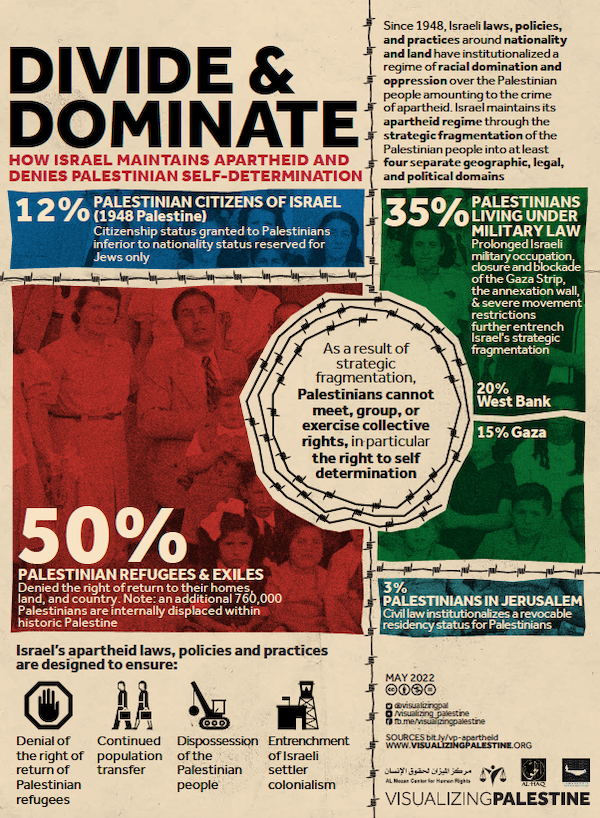
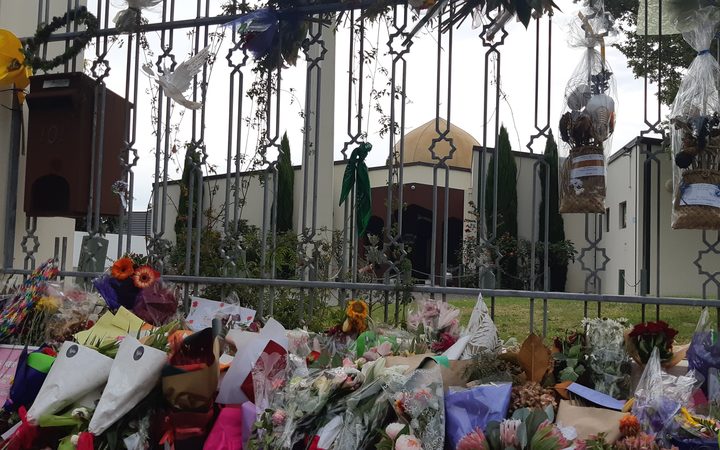
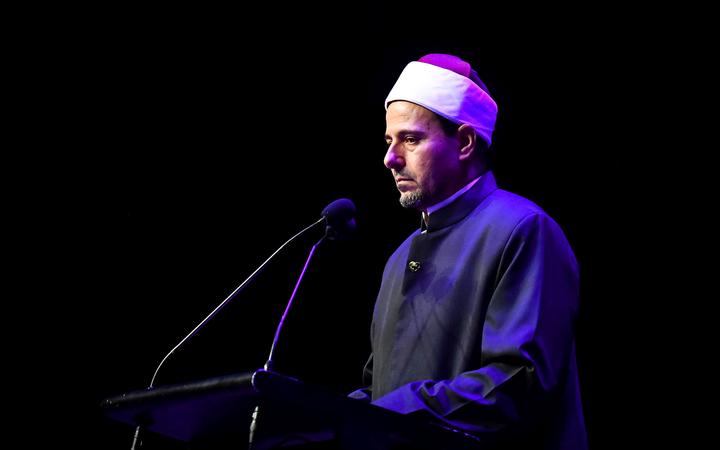
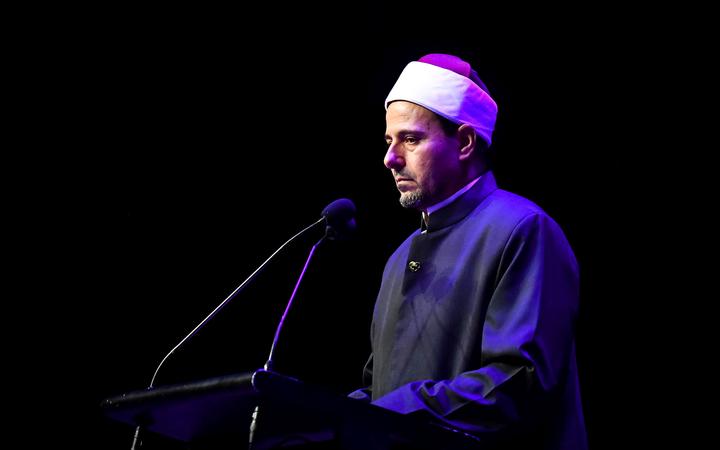 Gamal Fouda at the national remembrance service on Saturday. Image: Mark Tantrum/RNZ
Gamal Fouda at the national remembrance service on Saturday. Image: Mark Tantrum/RNZ